Exploring Lebanon’s loss distribution dilemma, focusing on banks using depositor funds to cover losses, evasion of accountability standards, and the urgent need for bank restructuring.
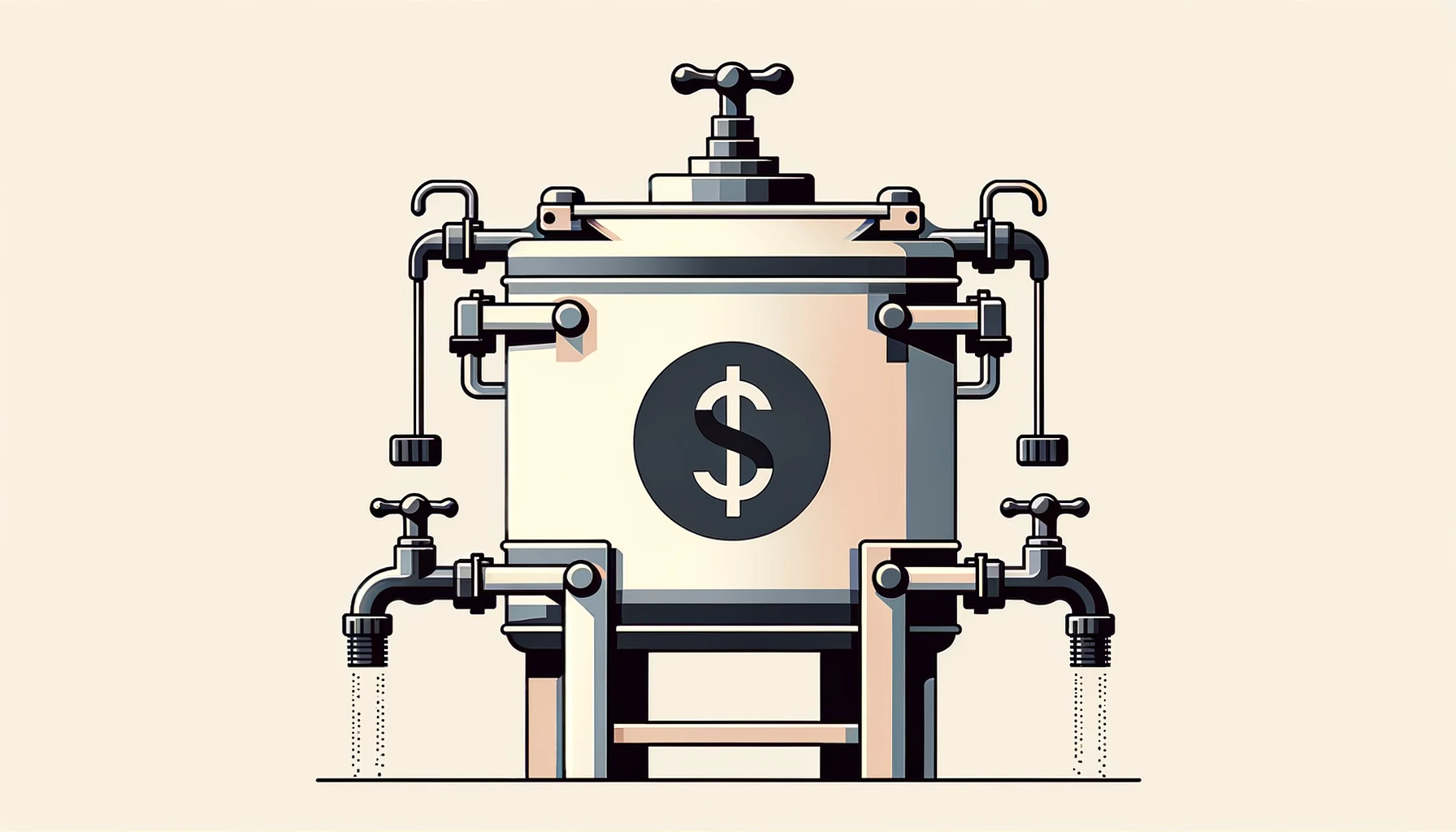


Exploring Lebanon’s loss distribution dilemma, focusing on banks using depositor funds to cover losses, evasion of accountability standards, and the urgent need for bank restructuring.

Analyzing Lebanon’s capital control laws, highlighting issues like illegitimate withholding of funds, conflicts of interest in regulatory bodies, depositor discrimination, and the need for stringent, fair amendments.
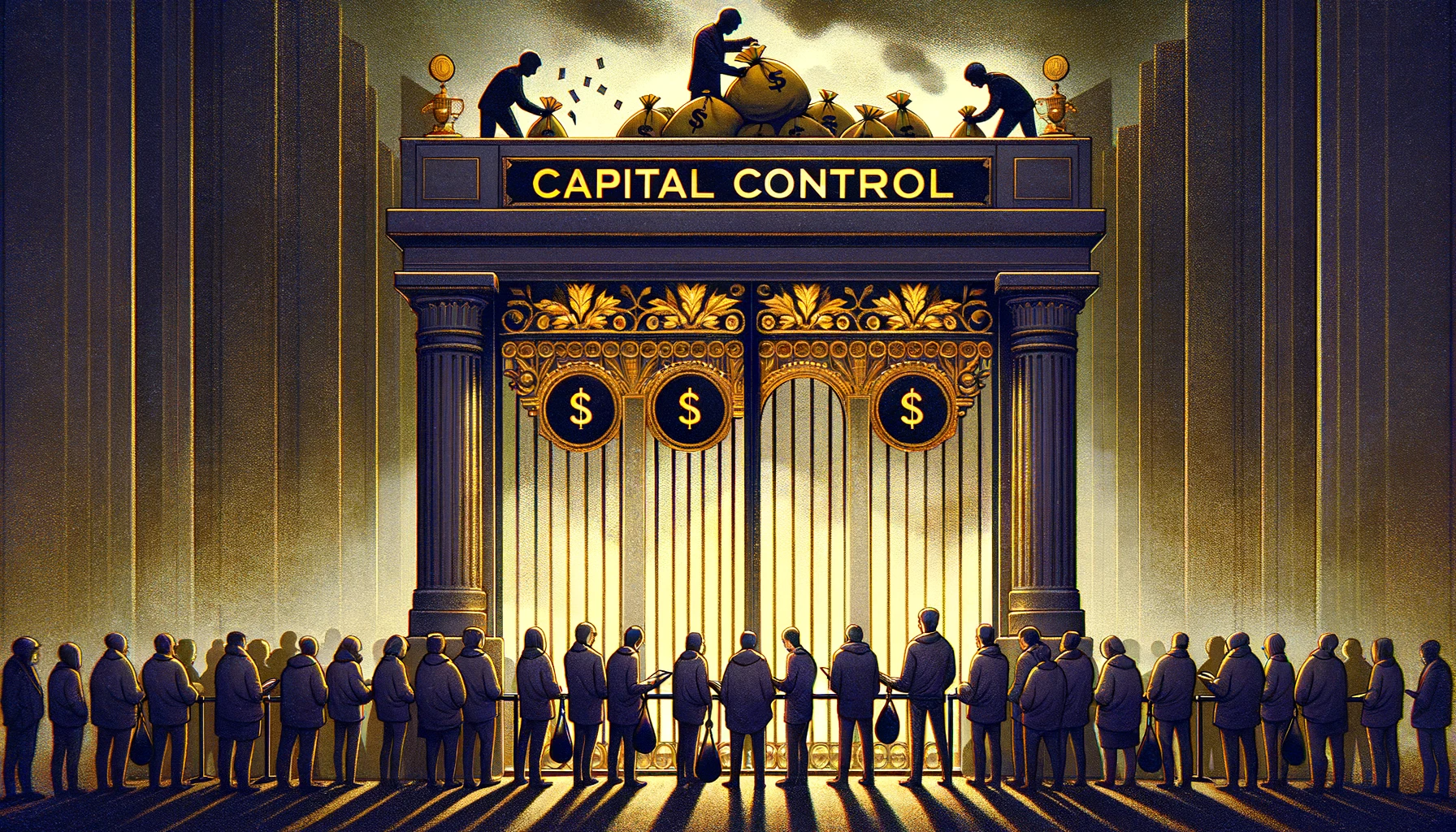
Lebanon’s capital control proposal risks entrenching financial corruption by granting banks undue amnesty and empowering a politically biased committee.
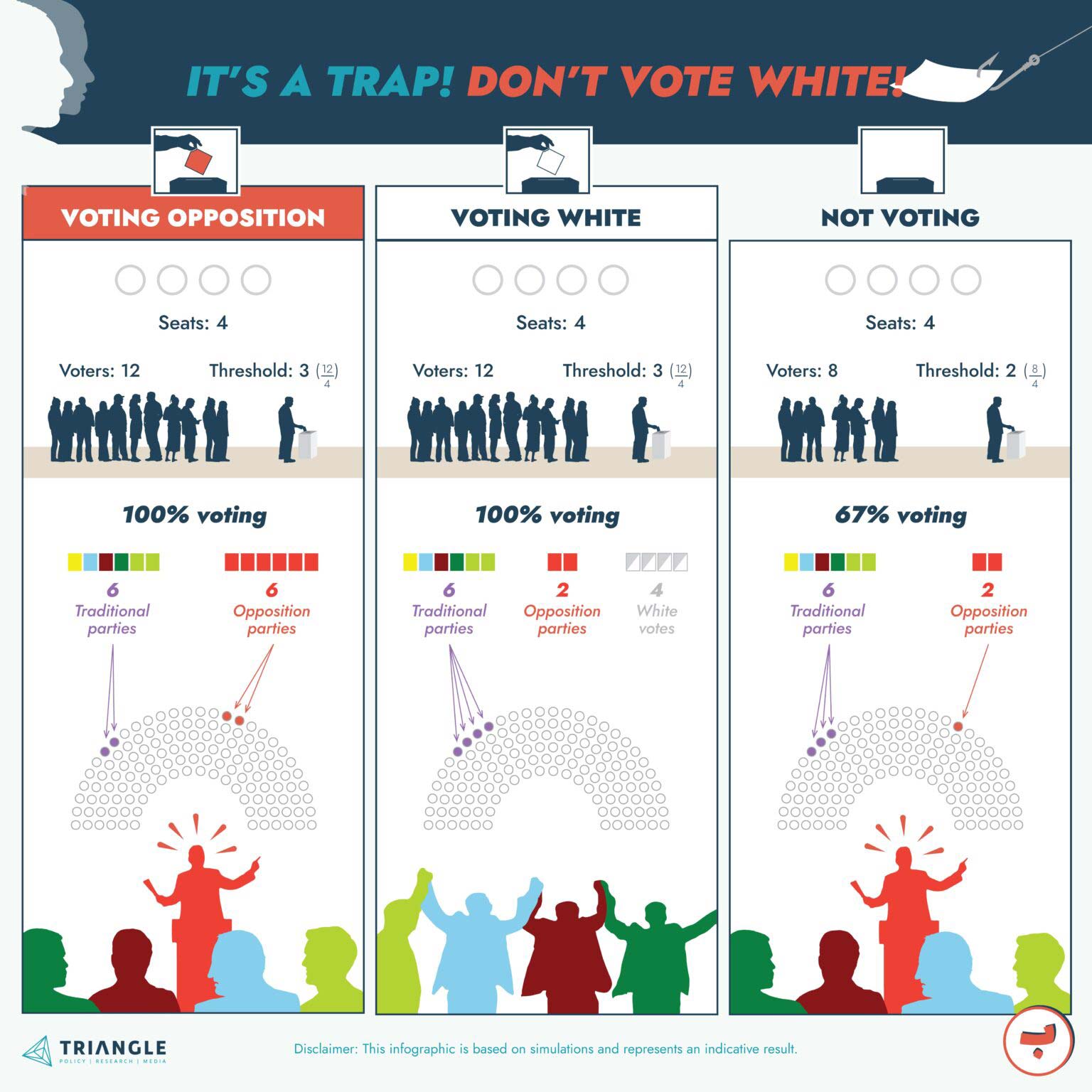
Traditional Lebanese political parties are expected to win the majority of the seats in Sunday’s elections. The result should not come as a surprise when these established parties are the ones who created, modified and approved the current electoral law that serves their own best interests. The...
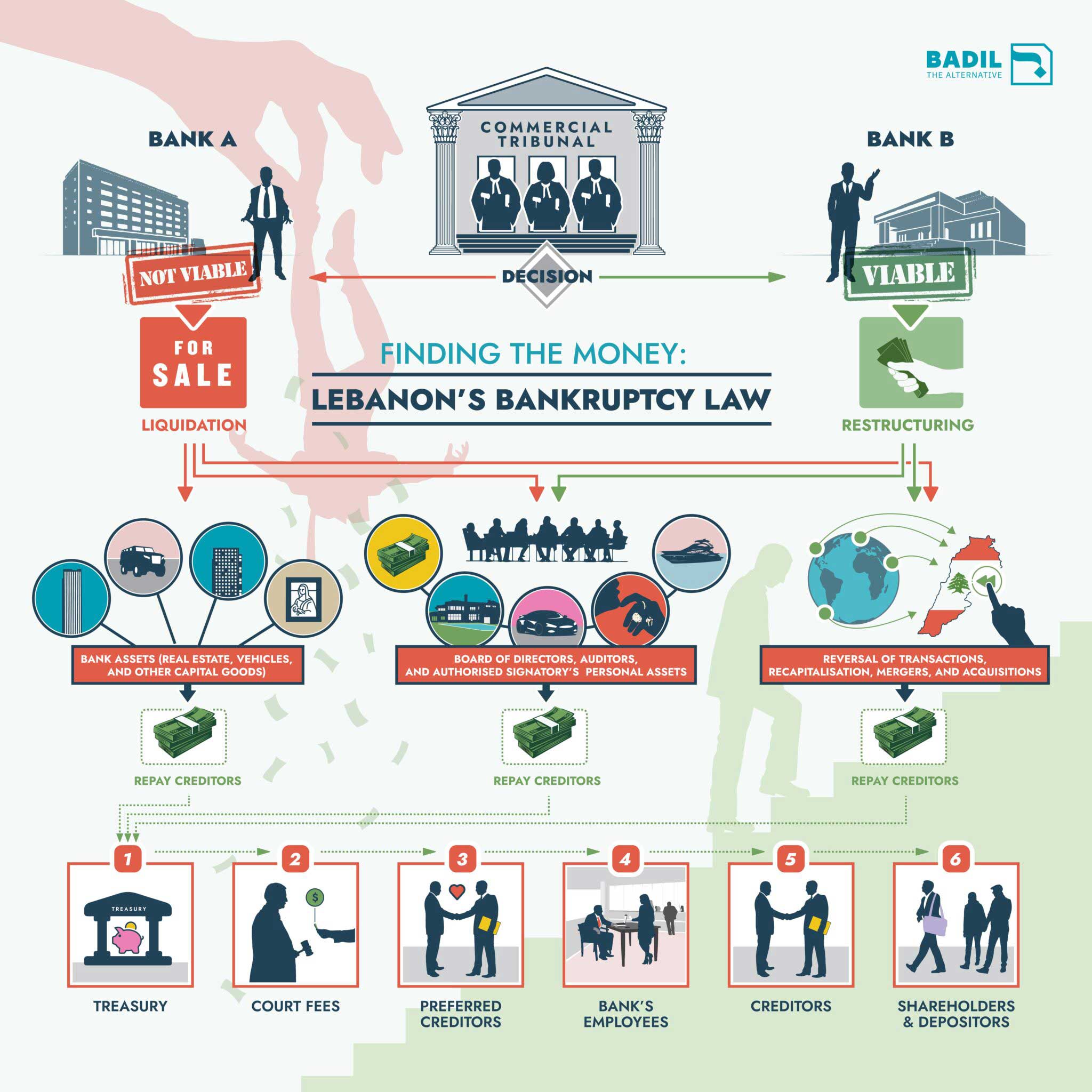
Lebanon’s Code of Commerce does little to protect bankrupt business owners, which in the long term discourages investment in the economy. But in the case of insolvent banks, it could help launch civil and criminal lawsuits against bank directors.

With the unprecedented election of 13 MPs from outside Lebanon’s body politic, there is a glimmer of hope that this time could be different—that is if the opposition starts off with a pragmatic and serious approach to its newfound position of (marginal) power.

While promising at first glance, in its current shape the draft bill is characterised more by ambiguities than substance. For example, the proposal fails to mention whether the lifting of banking secrecy is retroactive or offers a proper framework to determine when lifting banking secrecy is appropriate. Instead, the law includes rather obscure provisions for banks to deny requests for information, while opening the door to abuse of power.
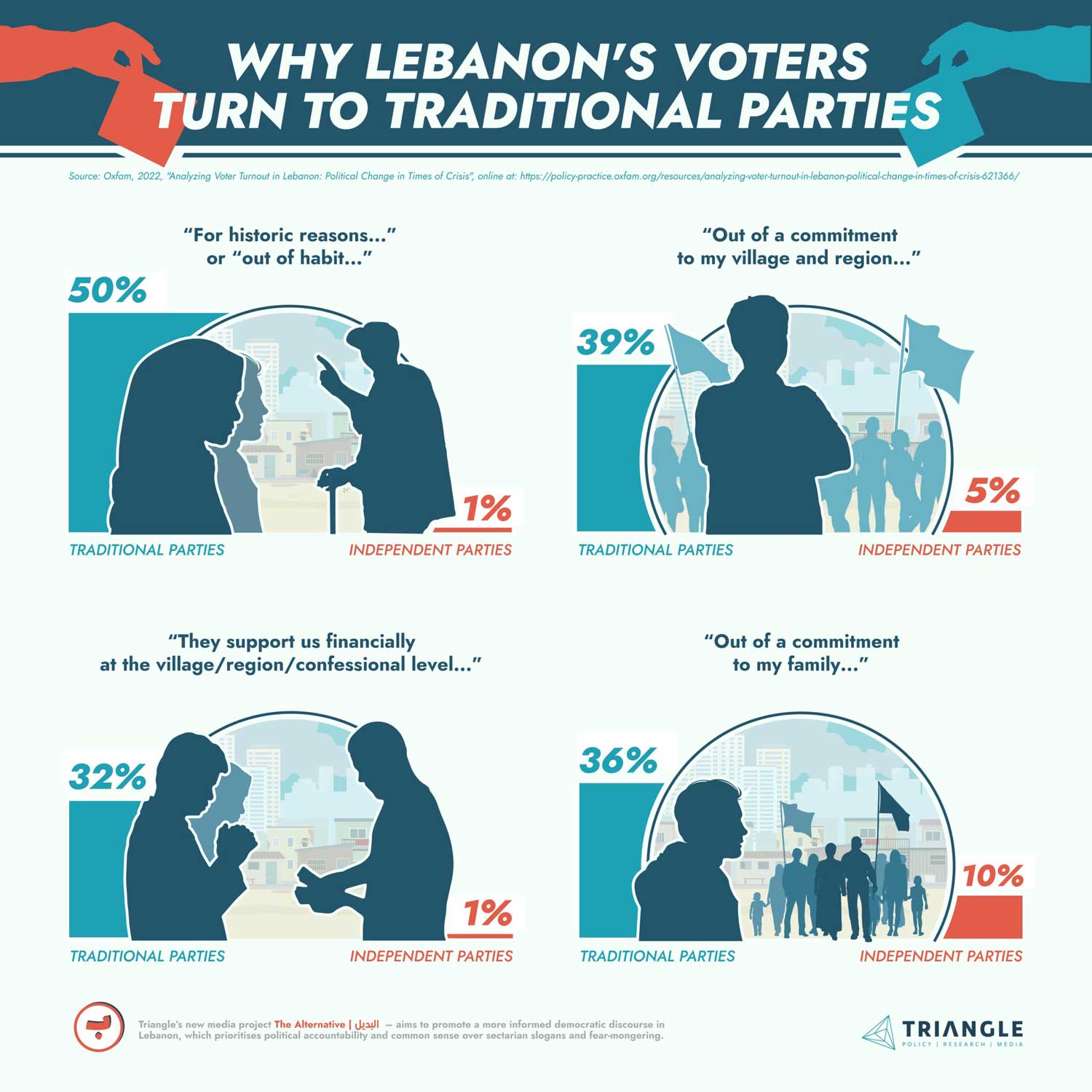
A new nationally representative study on voter intentions reveals hope for independents, while showing traditional parties maintain their voter base through tradition, identity politics, and political clientelism.

In light of Lebanon’s economic turmoil and pension crisis , how can we safeguard the retirement savings of Lebanese citizens?